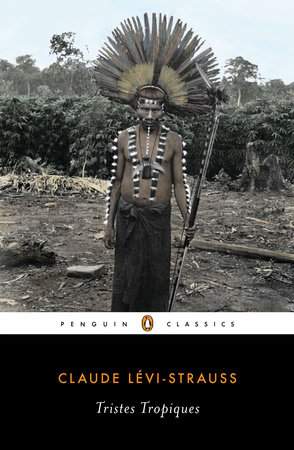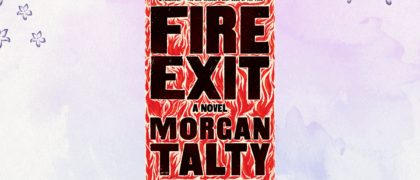By: Matthew Gutmann, Professor Emeritus of Anthropology at Brown University
My students are hard put to recall another writer, let alone an intellectual giant like Claude Lévi-Strauss, who inveighs against the dangers of literacy, as he does in Tristes Tropiques. It is a great discussion starter.
By turns travelogue and scholarly treatise on disappearing cultures in the Brazilian Amazon, this book contains one splendid provocation after another:
- European colonialism led to the slaughter of untold numbers of people through disease, warfare, and unqualified horror and disgust at European civilization
- Modern expertise has replaced the truth
- The attempt to put one’s own society into perspective is, “no more than a shamefaced way of admitting its superiority over all the others”
At one point, Lévi-Strauss refers to European civilization overall as a phenomenon which, “has amounted to a monstrous and incomprehensible cataclysm.”
Anthropology, Lévi-Strauss argues, “is one of the few genuine vocations.” One can “discover it in oneself,” much as with musicians or mathematicians. Yet if the best anthropologists are simply born that way, graduate students may reasonably ask, Why bother to get trained? Anthropology is a calling, take it or leave it, as simple as that.
Through explorations of the art, kinship, hunting techniques, and more among groups like the Caduveo, the Bororo, the Nambikwara, Lévi-Strauss wends his way through the badlands of 1930s Brazil—fully 20 years before he ultimately published this study for the first time in France—sharing insights and adventures, some of them cringeworthy or worse seen through today’s political prisms. Likewise, the mellifluous prose is spellbinding, except when his words trip into labels that no thoughtful writer would use today.
The seeds of the later, theoretically pioneering Lévi-Strauss are here, too, in his discussion of myths, child rearing, and food. Or take the issue of male/female dualisms that for him provides a core framework to understand nearly every social interaction. And just when a reader thinks that transgender debates and viewing gender outside a dualistic lens might have been beyond this anthropologist’s comprehension, he throws in references to Fire Island and Cherry Grove on Long Island, showing clear knowledge, if less knowledgeable language, that in the 1930s not everyone felt the need to make nice with the gender binary.
On the matter of power, in Tristes Tropiques Lévi-Strauss learns from his time among the Nambikwara that, contrary to certain sociological and psychoanalytic notions, power “both originates in consent and is bounded by it.” All those who would understand why people in the world today “vote against their interests” should take heed.
Yet every time I have taught this book, it is when we get to the sentence, “Writing is a strange invention,” that students can become truly puzzled in wonderful ways. True, writing helps societies keep track of where they’ve been and what they are and have. But it is the sinister side of writing that he especially wants to highlight. For instance, efforts to combat illiteracy that are invariably connected to governments’ efforts to increase their authority over citizens. Thus, according to the author of Tristes Tropiques, “My hypothesis, if correct, would oblige us to recognize the fact that the primary function of written communication is to facilitate slavery.” Provocations aplenty.
Original to the point of incendiary, this classic study of human existence should inspire and inflame generations to come.
Matthew Gutmann is Professor Emeritus of Anthropology and Faculty Associate at the Population Studies and Training Center at Brown University. As a scholar, his research and teaching has focused on studies of men and masculinities; public health; politics; and the military. His published books include The Meanings of Macho: Being a Man in Mexico City (also in Spanish and Portuguese editions); The Romance of Democracy: Compliant Defiance in Mexico City (also in Spanish and Chinese editions); Fixing Men: Sex, Birth Control and AIDS in Mexico (also in Spanish edition); Breaking Ranks: Iraq Veterans Speak out against the War (with Catherine Lutz); Global Latin America: Into the Twenty-First Century (edited with Jeffrey Lesser), and Are Men Animals? How Modern Masculinity Sells Men Short (also in Turkish, Romanian, and Chinese editions, with Spanish edition in preparation). With Jeffrey Lesser he is also editing the University of California Press Global Square book series.
Most of his ethnographic research has been conducted in Mexico where he is affiliated with the Colegio de México, and more recently in China, where he is affiliated with Nanjing University. From 2009 to 2013, he was Vice President for International Affairs at Brown, leading the University’s efforts to build collaborations and exchanges with leading institutions around the world and major programs relevant to internationalization. Gutmann has a Master’s in Public Health, and in 2008 he won the Eileen Basker Memorial Award for the best scholarly study on gender and health in anthropology. He has also been a visiting professor in China, France, Mexico, and Spain. In addition to working in Latin America for the last two decades, Gutmann’s undergraduate major was modern and classical Chinese.






